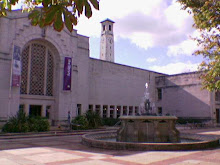This meeting took ‘Murder’ as its ‘M’ theme. No one relied on extracts from any of Shakespeare’s great murders. No ‘Put out the light and then put out the light’ (Othello), nor ‘I can smile and smile and be a villain’ (Richard III), but a fascinating selection of poems from several centuries. These included ‘Dilemma of a Would-be Writer’ by Daphne Helliwell; ‘The Murdered Traveller’, by William Cullen Bryant; ‘The Poet’s Obligation’ by Pablo Neruda; ‘The Staffordshire Murderer’ by James Fenton, ‘He Fell Among Thieves’, by Sir Henry Newbolt; Robert Browning’s ‘The Laboratory’; John Heath-Stubbs poetic take on murder mystery novels – ‘Send for Lord Timothy’, and J.R.R. Tolkien’s creepy fantasy piece ‘The Mewlips’.
Our meeting in November will be Free Choice, but it is Bonfire Night so maybe we can expect fireworks!
Our meeting in November will be Free Choice, but it is Bonfire Night so maybe we can expect fireworks!
